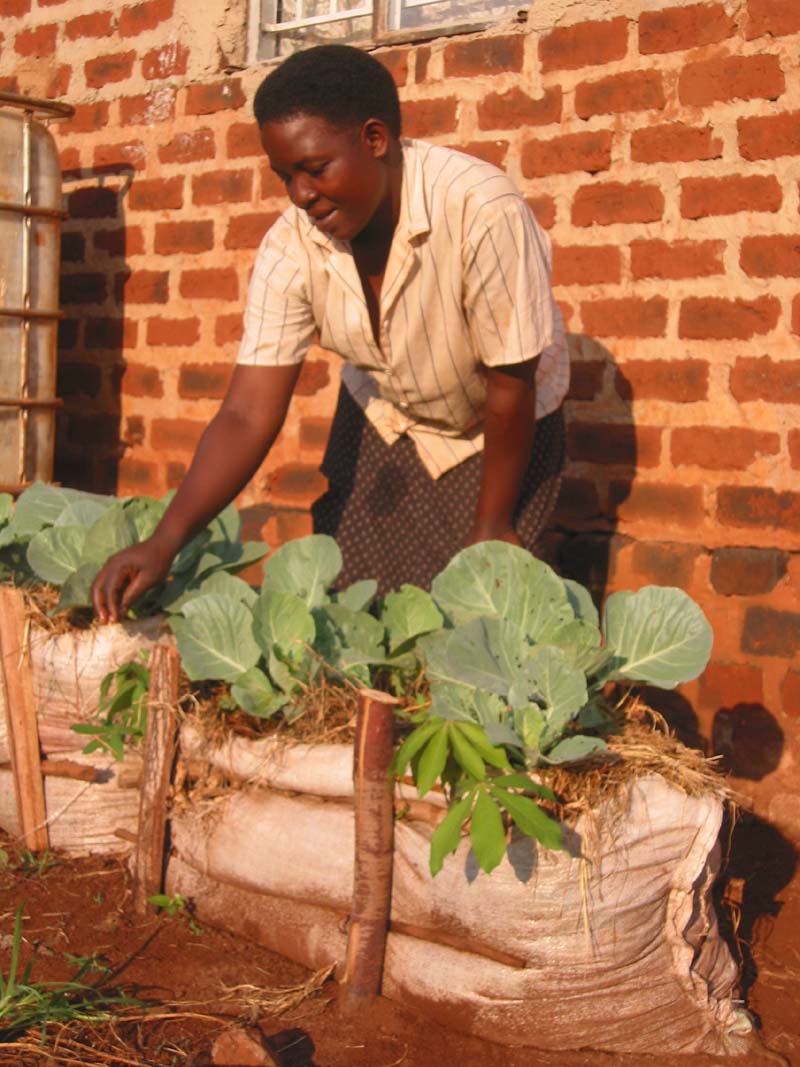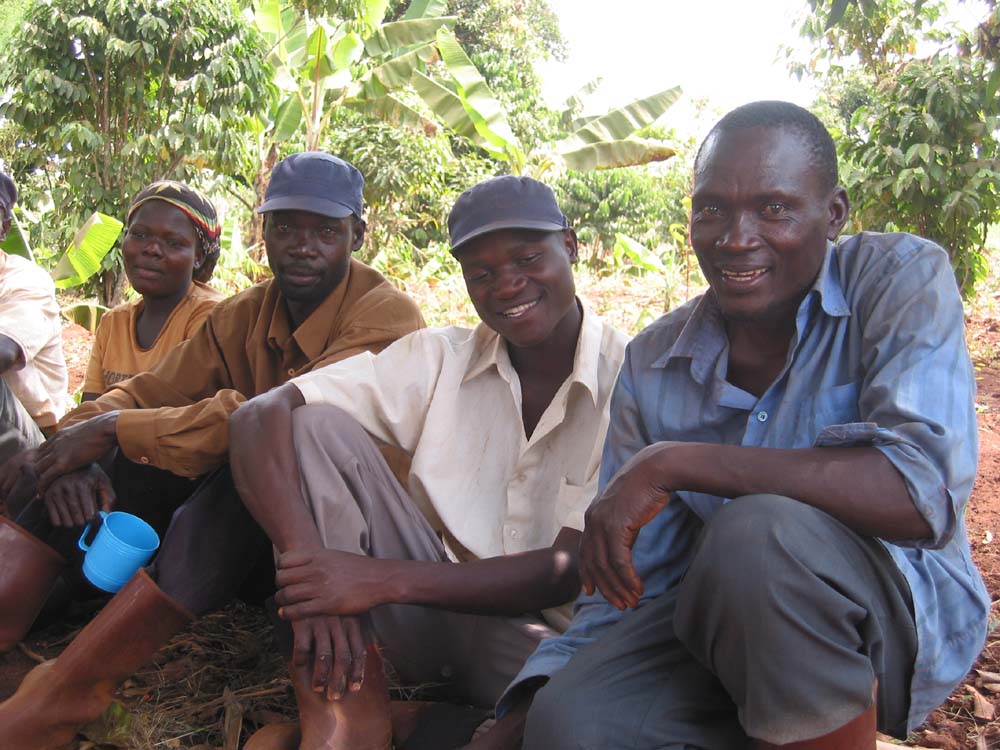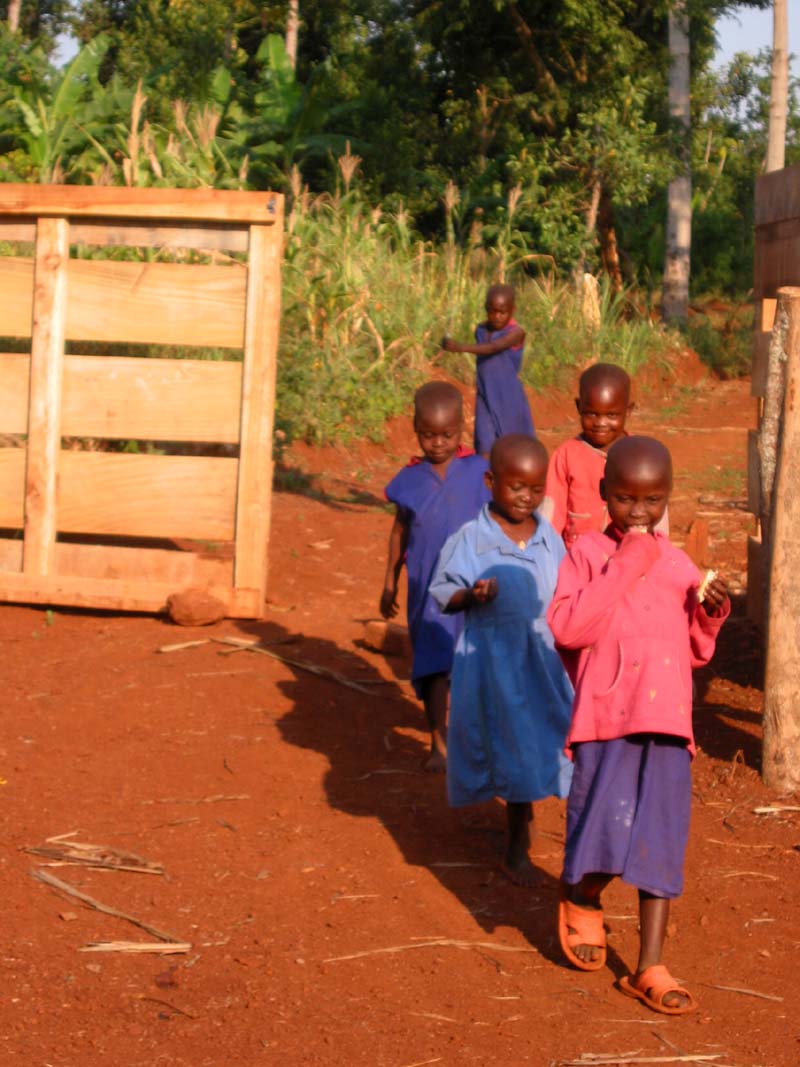St Isaac training centre (SITC)
Volunteer introduction.
 Our Sack Gardens are a good alternative when there is little space for planting a full garden. | St Isaac training centre was established in 2003. It is a community based organisation that is situated in the Jinja district. The organisation is currently working on projects in the districts of Jinja, Mukono and Kamuli. The organisation is still at an early stage of development; however, our work over the last few years has demonstrated the benefits that the project can bring to the rural poor. We hope to benefit even more people in the future by extending our activities. This profile provides for you information about the formation of the organisation, our aims and objectives, the activities we are currently carrying out, our plans for the future and the overall benefits of the project. |
Aims and objectives of the project.
SITC is working to tackle the problems of hunger and poverty amongst the rural poor. We
believe that one of the reasons that the rural poor experience these problems is the use of poor farming techniques. SITC is working to educate the rural poor about the alternative methods of farming and to encourage them to adopt integrated, sustainable organic farming.
Model garden in Mukono Working at St Isaac’s Kisimba school garden
Activities aimed at accomplishing our aims and objectives;
SITC has developed a training centre and a demonstration garden in Kainogoga village, 8km from Jinja town. The centre provides training to members of the local community in the classroom as well as practical activities in the demonstration garden. On going support will be provided to farmers who are involved in the project including visiting their gardens and offering advice and practical help.
One of our main aims is the establishment of model gardens in the community. We have created a group of 11 members who will work together on the model garden and then provide support to each other to establish and maintain their gardens. Each member is encouraged to identify 3 beneficiaries with whom they shall work. In this way we hope that there will be a multiplier effect.
The farming techniques that we promote include the use of double dug and raised beds. This helps to increase the fertility of the soil, prevent soil erosion and improves water retention. It also allows farmers to make better use of their land as they can farm more intensively and maintenance is also made relatively easier.
We promote organic farming and part of the training covers how to make and use manure and organic pesticides, provide improved planting materials to members and seeds for high income yielding crops, such as sweet corn.

Some of our local Volunteers after a hard days' work training a group from a village.
Why we are seeking a foreign volunteer.
We are still a young project and we are seeking assistance in helping us to grow and develop. We lack sufficient funds to employ a local person and it is unlikely that we will be able to attract a local person with the skills required to assist us on a voluntary basis. We believe that the volunteer from abroad will have fresh ideas and be able to make suggestions about how we can improve our work.
Role of the foreign volunteer.
We have identified a wide range of activities that a volunteer could carry out. It would not be possible for one volunteer to carry out all of the activities we have identified. However, having a wide range of tasks allows a potential volunteer to select those activities that they would find interesting and which they believe they are best suited to undertake. This list of activities includes;
Administration.
- Helping to improve our administration and establishing office systems.
- Setting up financial systems and advising on ways to raise income from SITC’s activities.
Household improvement;
- To date the work of the centre has been focused on agriculture. However, our aims and objectives include improving households. A volunteer could help us develop a household improvement program by carrying out the required research, developing a training program and assisting with construction work.
- Identifying potential donors and making funding requests.
- Helping to raise the profile of the centre with potentially interested parties and people within the community.
- Conducting research to identify the benefits that people have received from changing their farming practices.
Visiting orphan’s homes. Helping to build new school. Building poultry structure.
 |
Teaching;
We believe that the education of the children in modern farming techniques is very important. As well as educating the children, it is also a good way to spread information about new farming techniques to the rest of the community. So far we have established 4 school gardens and in the near future we will be working with the NGO – Softpower – to establish even more of these. |
|
Further information. Should you like to receive further information about this project, here is how you can contact us. Chris Kulabako + 256 774931 222 (0774 931 222) email; chriskula05@yahoo.com |